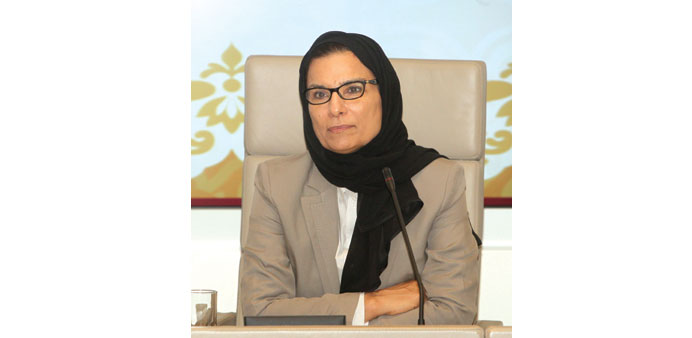|
|
Qatar University (QU), which currently has 15,000 students, might see this going up to 18,000 next year and 20,000 the year after, president Prof Sheikha Abdulla al-Misnad said yesterday.
“We are meeting the spurt in the number of students, from last year’s 12,000 and the predicted growth for the next couple of years, with substantial measures on all fronts,” she stated.
“Being the national varsity, QU cannot place a cap on the admission of Qataris,” Prof al-Misnad told Gulf Times. “We are committed to accommodate every Qatari who meets QU’s admission criteria,” she asserted.
According to last year’s prediction, the student strength was supposed to reach 20,000 only towards the end of this decade. But given the current scenario, all the calculations are being redone and hence the new projections.
Coping with an increase in 3,000 registered students this year would prepare QU to plan for the coming years. Steps are being undertaken on a priority basis to ease the pressure on services and buildings.
“In order to cater to the increase in the number of students, we are building temporary teaching halls near main colleges and have started offering an online course on an experimental basis,” Prof al-Misnad explained.
The core curriculum course on Islamic Education is being offered online as a pilot this term. If this proves successful, more courses are to be extended through the e-learning platform in the next phase.
“Not all courses can be online. But we hope more core curriculum courses could be offered online in the long run,” the president said.
A university-wide committee has been constituted recently to determine the viability of online courses.
“Our technological infrastructure is at the cutting edge of education technology, and we are leaders in the use of Lecture Capture technology. We will build on this expertise to offer online courses,” al-Misnad asserted.
The second cycle of QU Strategic Plan, the one for 2013-2016, was launched this year following deliberations by four working groups with representation across QU campus.
The plan has been developed based on societal needs, changing variables, and clear performance measures guided by QU’s vision to become a regional leader in higher education.
The four thrust areas are to nurture student experience, optimise institutional effectiveness, build international recognition, and recognise scholarly excellence. “Strategies by all QU sectors, colleges, departments and research centres will derive from this overarching plan,” she added. Page 34

